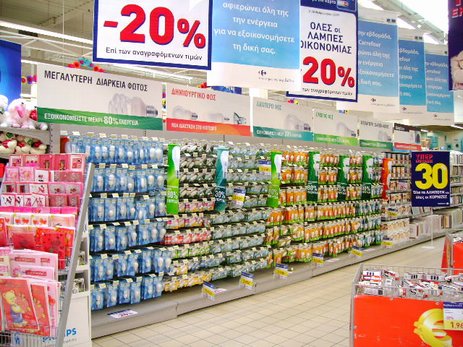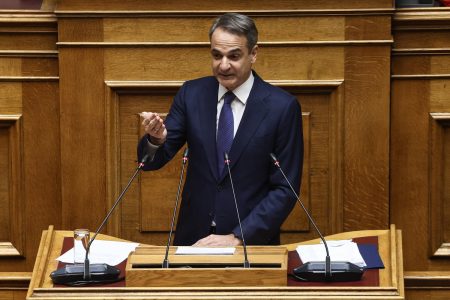It is customary at the beginning of the year to exchange good wishes for health and to cultivate expectations of progress and prosperity.
The wishes are of course welcome. Yet, carried away by the pleasant holidays, we often forget that with our actions and choices we determine our fate and future.
The holidays were days of joy and relaxation. As a result, even apparent threats and confirmed dangers were brushed aside or at best bypassed, and not enough attention has been paid.
The truth be told, 2022 due to prevailing conditions will undoubtedly be in all ways a difficult and crucial year of transition.
Firstly, the pandemic, which is a disorganising, public health time bomb, remains active and capable, as it has proven, of undermining economic and social life.
Obviously, we are hopeful that the COVID-19 Omicron variant will signal the end of the pandemic, but for the time being nothing can confirm that.
On the contrary, due to its high rate of transmission, it can disorganise hospitals and suspend a large segment of economic activity because of a massive daily number of infections. That requires vigilance and provisions regarding the National Health System, and averting critical aspects of public life coming to a halt.
The threat of the pandemic in any event will not easily leave us. Even if the Omicron variant is proven to be a “bubble” that will at some point burst, one cannot preclude the emergence of a new variant.
The public health threat is not the only one. The pandemic severely disturbed the global supply chain, which in turn brought a strong cycle of inflationary pressures to Greece’s and all of the planet’s economies.
There have already been major price hikes on a host of goods, including food.
Almost simultaneously, combined with the climate crisis, this tumult triggered an explosion in the prices of petrol and natural gas, placing on the economy new burdens that can disorient and limit the thrust of economic growth.
If in order to handle inflationary pressures there is an overturning of Central Banks’ supportive monetary policy, we will see an interest rate hike.
That will have repercussions on the health of businesses and their competitiveness, and on the operation of capital markets, which in previous years were generous in bolstering economies hit worse by the pandemic, especially the Greek economy, which had easy access to money cheaply.
To the extent that monetary policy changes in order to manage the possible consolidation of inflationary pressures, the Greek economy will confront additional difficulties – funding and others – as financial rating agencies have not sufficiently upgraded it and have not given the much-desired investment grade.
Moreover, if the energy crisis is protracted and the state has to offer long-term electricity subsidies, we may well confront the need for fiscal adjustment earlier than we expected.
That will be exceptionally difficult politically, as this year we will have the run-up to general elections and pre-electoral pressures for handouts will intensify.
This year comes with a chain of threats and dangers capable of derailing the country’s course toward a desired recovery and reconstruction.
Undoubtedly, 2022 will not be a simple year. It will be a transitional year full of threats and dangers.
Let those in charge know that optimism is fine but, as the saying goes, “The children of the prudent cook before they go hungry.”



